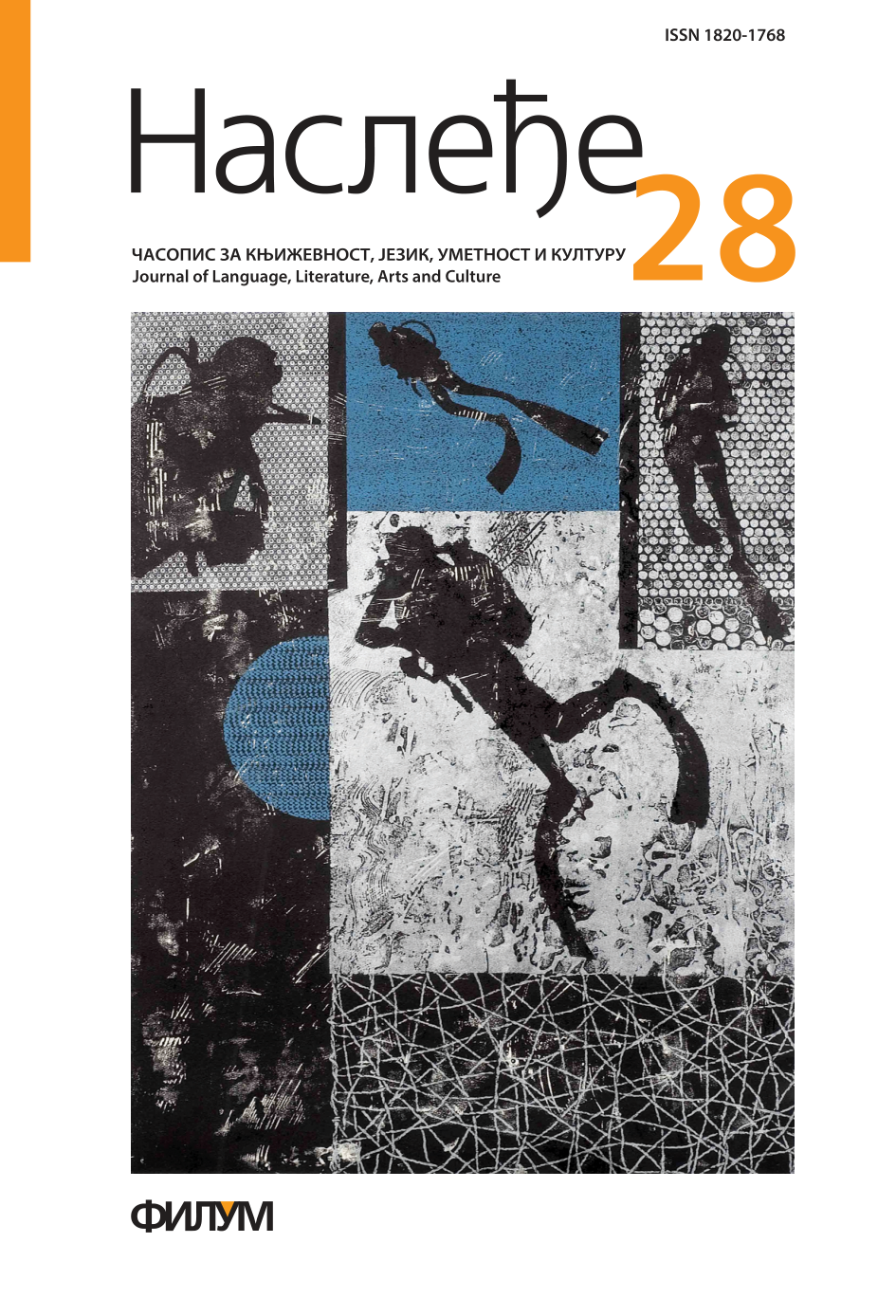AN AGENDA FOR THE RESEARCH OF ESP VOCABULARY ACQUISITION
Keywords:
ESP vocabulary, acquisition, input, output, simulationAbstract
Searching for the best approaches in teaching and learning English for Specific Purposes (ESP), particularly ESP vocabulary, and examining the most efficient methods, strategies and activities to promote effective vocabulary acquisition has been a noteworthy line of research in the field of Second Language Acquisition (SLA), but not as much in the field of ESP vocabulary acquisition, especially in the field of Business English for Economists. Increased interest in communicative and interactive approaches to ESP language learning has led to creating this article as a form of (pre)modified input for а research planned to be carried out at the Faculty of Economics, University of Kragujevac during the winter semester of the academic year 2014. Despite the fact that this article will be descriptive in its nature, it represents the research agenda for the future planned investigation that will provide empirical evidence of influence of (pre)modified input and (pre)modified output on ESP vocabulary acquisition focusing on Task Based Learning (TBL) and experiential teaching and learning methods for
References
Brown 2000, H. D. Brown, Principle of language learning and teaching, New York: Pearson Education.
de la Fuente 2002: M. J. de la Fluente, Negotiation and oral acquisition of L2 vocabulary, Cambridge: SSLA, Cambridge University Press, 81-112.
Doughty 2001: C.Doughty, Cognitive underpinnings of focus on form. In P. Robinson (Ed.). Cognition and second language acquisition, (pp. 206-257). Cambridge: Cambridge University Press.
Ellis 2003: R. Ellis, Designing a task-based syllabus, Oxford: RELC Journal, 34, 664-681.
Ellis 2003: R. Ellis, Task-Based Learning and Teaching, Oxford: Oxford University Press
Ellis 2004: R. Ellis, The definition and measurement of explicit knowledge, Oxford: Language learning, 54, 227-275.
Ellis 2005: R. Ellis, Instructed second language acquisition: a literature review, New Zealand: Ministry of Education, 722.
Ellis 2005: R. Ellis, Instructed Language Learning and Task-Based Teaching. In E. Hinkel, Handbook of Research in Second Language Teaching and Learning. (pp. 713-728). New Jersey: Lawrence Erlbaum Associates, Inc., Publishers.
Ellis 2002: R. Ellis, Does form-focused instruction affect the acquisition of implicit knowledge? A review of the research. Studies in Second Language Acquisition, 24, 223-236.
Harmer 2001: J. Harmer, The Practice of English Language Teaching. London: Longman. Pearson Education Limited.
Izumi 2002: S. Izumi, Output, input enhancement, and the noticing hypothesis:Studies in Second Language Acquisition, 24, 541-577.
Hinkel 2005: E. Hinkel, Handbook of Research in Second Language Teaching and Learning. New Jersey: Lawrence Erlbaum Associates, Inc., Publishers.
Laufer 1998: B. Laufer, The development of passive and active vocabulary in second language: Same or different? Applied Linguistics, 19, 255-271.
Long 1985: M. Laufer, A role for instruction in second language acquisition: Taskbased language teaching. In K. Hyltenstam & M. Pienemann (Eds.), Modelling and assessing second language acquisition, 377-393.
Long 1985: M. Long, Focus on form: A design feature in language teaching methodology. In K. de Bot, R. Ginsberg, & C. Kramsch (Eds.), Foreign language research in cross-cultural perspective, 39-52. Amsterdam: Benjamins.
McHoul 1978: A. McHoul, The organization of turns at formal talk in the classroom. Language in Society, 7, 182–213.
McHoul 1990: A. McHoul, The organization of repair in classroom talk. Language in Society, 19, 349–377.
Nation 1990: P. Nation, Teaching and learning vocabulary, Rowley, MA: Newbury House.
Paribakht, T. S., & Wesche, M. (1997), Vocabulary enhancement activities and reading for meaning in second language vocabulary acquisition. In J. Coady & T. Huckin (Eds.), Second language vocabulary acquisition: A rationale for pedagogy (pp. 174–200). Cambridge: Cambridge University Press.
Sarani, Abdullah & Sahebi, Leila Farzaneh.(2012), The Impact of Task-based Approach on Vocabulary Learning in ESP Courses. English language teaching, 5(10), 118-128. http://dx.doi.org/10.5539/elt.v5n10p118. doi:10.5539/elt.v5n10p118
Shehadeh 1999a: A. Shehadeh, Non-native speakers’ production of modified comprehensible output and second language learning. Language Learning, 49(4), 627–675.
Shehadeh 2002: A.Shehadeh , Comprehensible Output, From Occurrence to Acquisition: An Agenda for Acquisitional Research.Language learning, 52(3), 597-647.
Skehan 1998: P. Skehan, A cognitive approach to language learning. Oxford: Oxford University Press.
Swain 1985: M. Swain, Communicative competence: Some roles of comprehensible input and comprehensible output in its development. In S. Gass & C. Madden (Eds.), Input in second language acquisition (pp. 235–253). Rowley, MA: Newbury House.
Swain 1997: M. Swain, Collaborative dialogue: Its contribution to second language learning. Revista Canaria de Estudios Ingleses, 34, 115–132.
Swain, M., & Lapkin, S. (1998). Interaction and second language learning: Two adolescent French immersion students working together. Modern Language Journal, 82(3), 320–337.
Tornopolsky 2012: O. Tornpolsky, Constructivist Blended Learning Approach to Teaching English for Specific Purposes. London: Versita, Versita Ltd.
Van den Branden 1997: K. Van den Branden, Effects of Negotiation on Language Learners. Output. Language learning, 47(4), 589-636.
Wells 1985: G. Wells, Language development in the pre-school years, Cambridge: Cambridge University Press.
Willis 1996: J. Willis, A Framework for Task-Based Learning, London: Longman. Pearson Education Limited.






